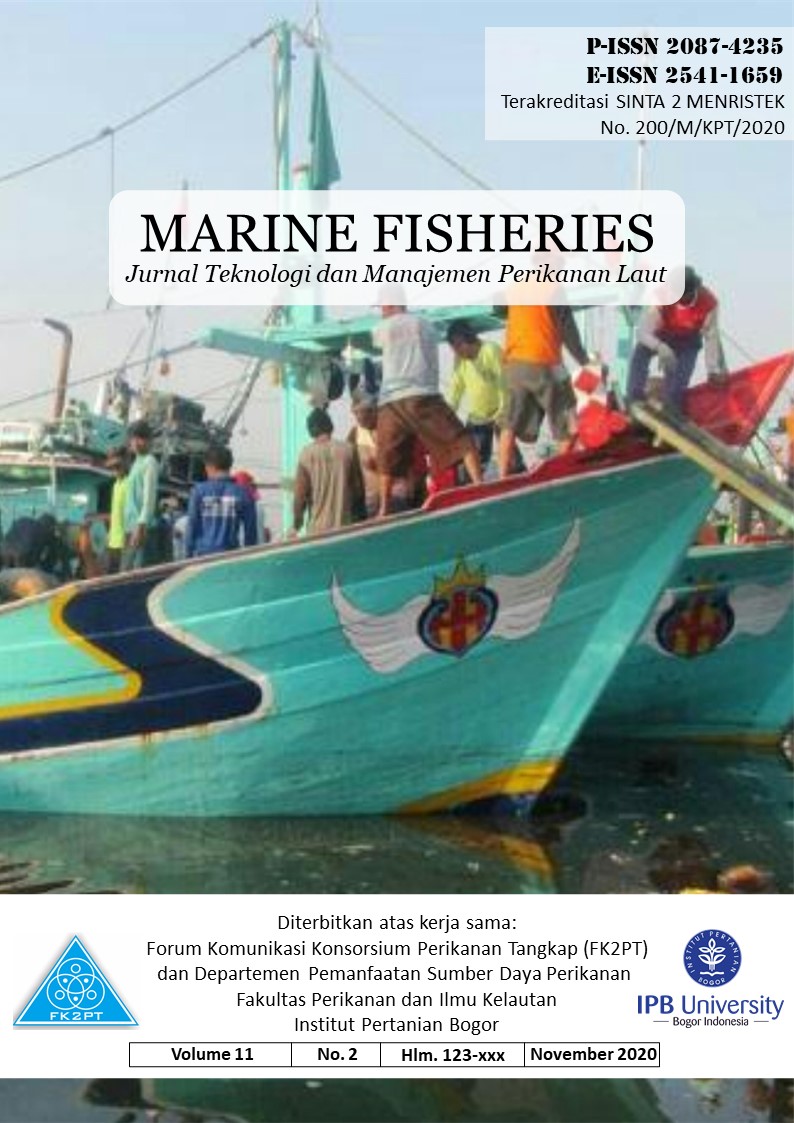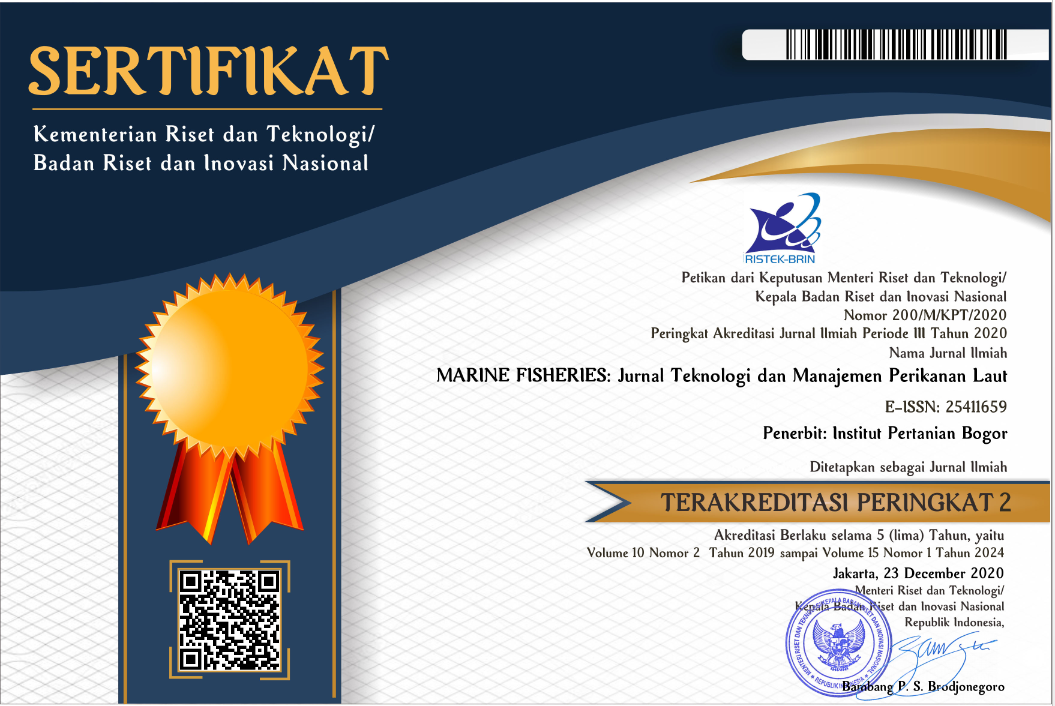The Economies of Scale and Efficiency of Small-Scale Capture Fisheries in Kurau Village, Central Bangka District
Abstract
This study investigates the economies of scale and efficiency of small-scale capture fisheries, as well as to know how the socio-economic variable influencing the small-scale capture fisheries business in the Kurau village, Central Bangka district. The approach used is a quantitative method by applying multiple linear regression models to adopt the Cobb-Douglas production function. The study found that the scale-economies condition in the small-scale fisheries is decreasing return to scale. We also found the results of allocative efficiency in this small-scale fisheries business are relatively inefficient. Other findings of model estimation indicated that the variables of capital, labor, and fishing distance have a positive and significant effect, while the variables of age, experience, and education level of fishermen have no significant effect on small-scale fisheries production. The main factor that is an obstacle for local fishermen is technology, therefore technology assistance and support from the government are needed as a policy to improve small-scale capture fisheries business and fishermen welfare.
Downloads
Author(s) who published in this journal agree to following terms:
- Author(s) must understand and agree that the copyright script in published owned by the Marine Fisheries Journal. The copyright includes reproducing and selling the manuscript to all parties.
- Everyone can cite every manuscript published in Marine Fisheries for educational purposes, with the author's name and the Marine Fisheries Journal on reference.









